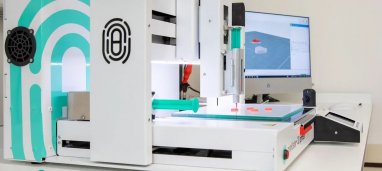Scientists from Germany, with financial support from the European Union, are testing a technology for manufacturing medicines using 3D printers. The main task of the researchers is to make taking medicines as comfortable as possible, especially for children with serious illnesses, euro-pulse.ru reports.
Most medicines intended for children are bitter and too large, making it difficult for little patients to swallow them. The solution to this problem is personalized chewable tablets created using 3D printing. Their texture resembles popular jelly candies, they have a pleasant raspberry aroma, and their shape can vary from circles to stars or hearts.
Each printed drug undergoes thorough testing for compliance with all quality standards.
As part of the clinical trials, children undergo the first course of chemotherapy using traditional tablets, and the second – using drugs created on a 3D printer. The study will continue until the end of 2026.
The use of 3D printing technology in pharmaceuticals opens up prospects not only for pediatrics, but also for adult patients, especially those suffering from Parkinson’s disease or dementia, who also have difficulty taking conventional medications due to their size and unpleasant taste.














